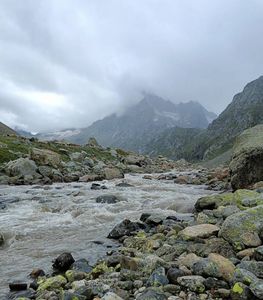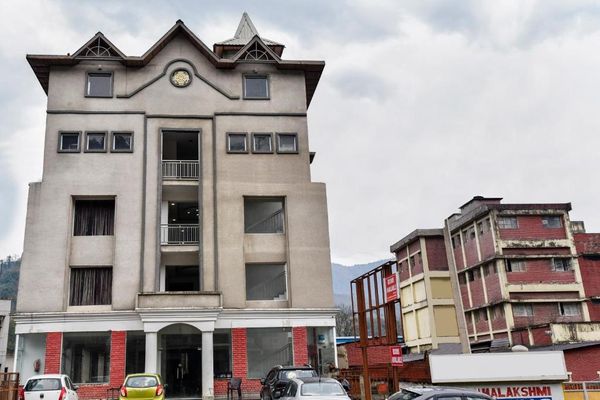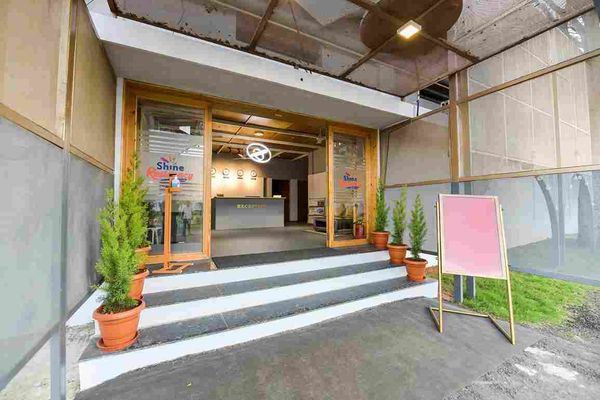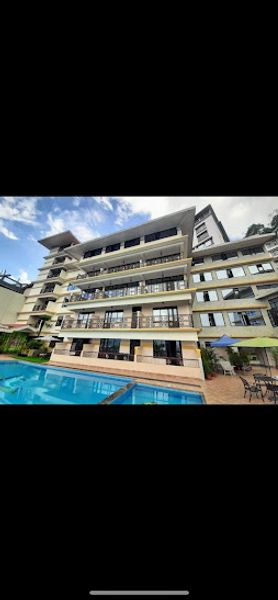Hampta Pass in 5 Days: How the Landscape Transforms Each Day
 Deepanshu Travel
19 Jul, 2025
9 mins read
10
Deepanshu Travel
19 Jul, 2025
9 mins read
10

Hampta Pass is one of the most popular treks in Himachal Pradesh, India. It is known for its changing landscapes that offer something new every day. From green valleys to snow-covered mountains and rocky deserts, Hampta Pass gives a unique experience to every trekker.
In this article, we will take you through the 5-day Hampta Pass trek and show how the scenery changes with each step. This guide will help you understand what to expect and prepare for during the trek.
Day 1: Manali to Jobra to Chika – The Beginning in the Forest
The journey starts from Manali, a busy town in Himachal Pradesh. From here, trekkers drive to Jobra, the base camp for the Hampta Pass trek. The drive takes around two hours and goes through thick pine forests, apple orchards, and winding mountain roads.
Once at Jobra, the trek begins with a short walk to Chika, which is about 2 kilometers away. The path goes through a forest filled with pine, maple, and oak trees. The sound of the river flowing beside the trail adds to the peaceful experience.
The landscape on Day 1 is green and full of life. Tall trees provide shade and the soft ground makes walking easy. You will see wildflowers, grazing sheep, and small wooden bridges. Chika is a beautiful campsite with a river flowing nearby and mountains in the background.
Key Highlights
- Green forest with tall pine and oak trees
- Peaceful river flowing beside the trail
- Campsite with scenic views
Day 2: Chika to Balu Ka Ghera – From Meadows to the Mountains
On the second day, the trek becomes a bit more challenging as you gain height. The path from Chika to Balu Ka Ghera is around 5 kilometers and takes about 5 to 6 hours to complete.
The forest starts to thin out, and the landscape changes to wide meadows filled with colorful flowers during the summer months. You will cross a few streams using wooden logs or stepping stones. The sound of the water and the cold breeze make the climb enjoyable.
As you move higher, the trees disappear and rocky patches begin to appear. Snow can be seen on the peaks far away. Balu Ka Ghera, which means "bed of sand," is a flat land covered in stones and grass. It is the last campsite before the Hampta Pass.
The sky looks clearer here, and the nights are cold. You are now surrounded by tall mountains, and you may spot snow on the nearby slopes.
Key Highlights
- Meadows with wildflowers
- Cold winds and open views of snow-capped peaks
- Campsite close to the base of the mountains
Day 3: Balu Ka Ghera to Hampta Pass to Siagoru – The Big Climb and the Big Change
This is the most exciting and challenging day of the trek. You will climb to the highest point, Hampta Pass, and then descend to Siagoru. The trek is about 9 kilometers and takes around 8 to 9 hours.
The trail starts with a slow climb on rocky paths. As you go higher, you will see more snow, especially in June and July. You may even have to walk on snow for a part of the way. The climb to the pass is steep but worth the effort.
Once you reach Hampta Pass, you will feel like you are standing on top of the world. The view is amazing with mountains on both sides and deep valleys below. You can see the green valley of Kullu on one side and the dry, brown land of Lahaul on the other.
The descent to Siagoru is steep and takes time. The landscape now changes completely. You leave behind the green valleys and enter the cold desert of Lahaul. The land is rocky, and the colors turn to brown and grey.
Siagoru is a quiet campsite near a small stream. The night here is cold, and the stars look bright in the clear sky.
Key Highlights
- Reach the highest point at Hampta Pass
- Walk on snow depending on the season
- Enter the desert landscape of Lahaul
Day 4: Siagoru to Chatru – Walking Through the Desert
The trail on Day 4 is easier as you descend further from Siagoru to Chatru. This part of the trek is around 7 kilometers and takes about 5 hours. The landscape is completely different now.
You are walking through the Lahaul valley, which is dry and has very little vegetation. The mountains here are made of rock and soil. The river flows along the trail, and the wind can be strong.
There are no trees or meadows now. The beauty of this place lies in its simplicity. The brown and black rocks give a raw and untouched look to the valley.
As you reach Chatru, you will see signs of civilization. Vehicles can be seen, and there are a few tents and dhabas (roadside eateries). This is where trekkers often get their first phone signal after several days.
Key Highlights
- Desert-like rocky terrain
- River crossing
- First contact with road and vehicles after days in nature
Day 5: Chatru to Chandratal (Optional) and Drive Back to Manali
On the last day, if the road is open and the weather is good, many trekkers choose to visit Chandratal Lake, also known as the Moon Lake. It is around 70 kilometers from Chatru and takes about 3 hours by vehicle.
Chandratal is a high-altitude lake with clear blue water. It sits in the middle of the cold desert, surrounded by mountains. The lake changes color depending on the time of day and the angle of the sun.
After visiting the lake, trekkers drive back to Manali via the Rohtang Pass. The drive is long but scenic, passing through snow-covered roads and beautiful valleys.
If Chandratal is not accessible due to weather, trekkers drive directly to Manali from Chatru.
Key Highlights
- Option to visit Chandratal Lake
- Scenic drive through Rohtang Pass
- Return to green valleys from cold desert
Final Thoughts
The Hampta Pass trek is special because of how the landscape changes every day. You start in green forests, walk through meadows, climb snowy mountains, and end in a rocky desert. This variety makes it one of the best treks for beginners and experienced trekkers alike.
Each day brings a new view and a new challenge. It is not just a walk in the mountains, but a journey through different worlds. If you love nature, adventure, and photography, Hampta Pass is the perfect trek for you.
Written By:
Deepanshu Travel



Hotels at your convenience
Now choose your stay according to your preference. From finding a place for your dream destination or a mere weekend getaway to business accommodations or brief stay, we have got you covered. Explore hotels as per your mood.





